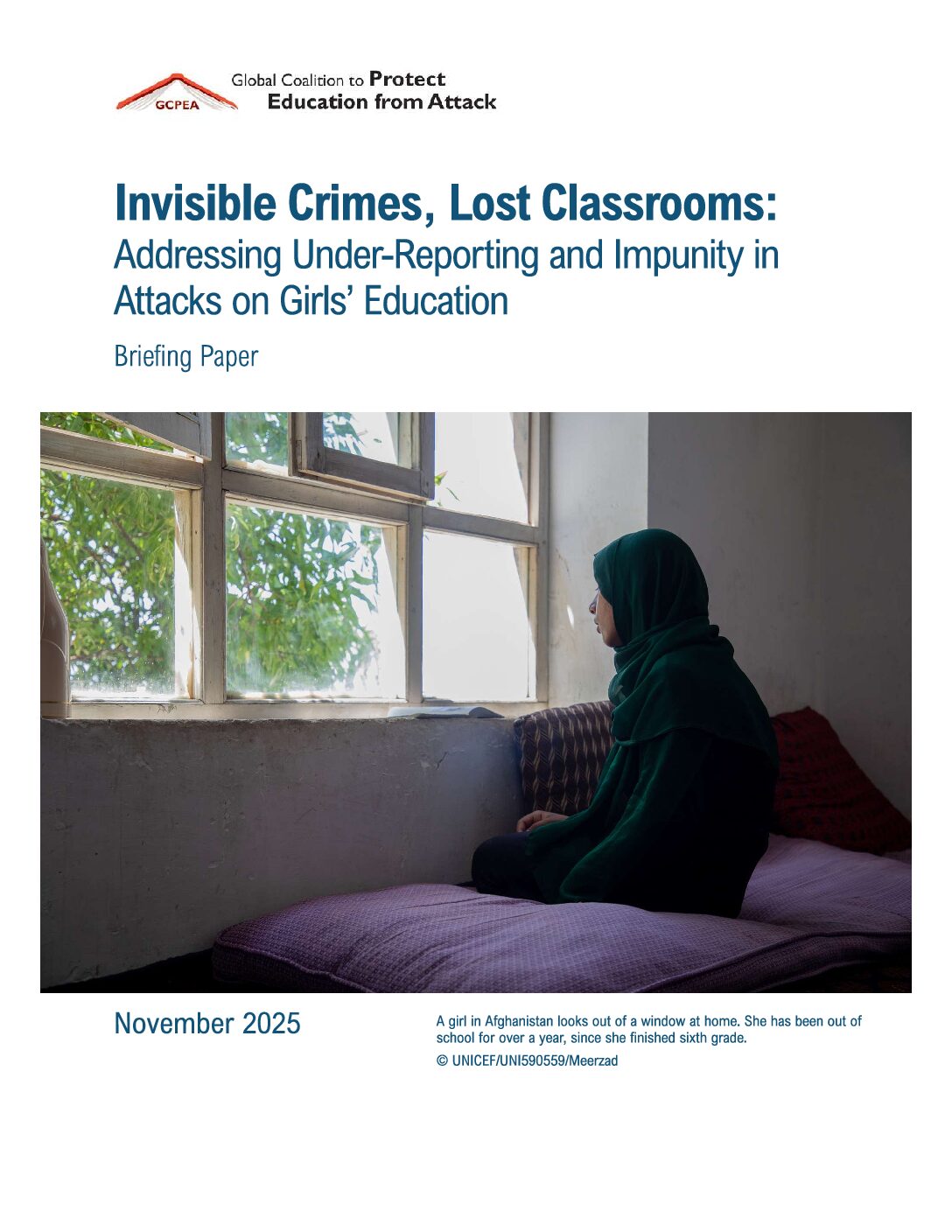GCPEA News
Why Britain Should Back the Safe Schools Declaration
Bright Blue / Human Rights Watch, October 12, 2017
This morning I helped my 12-year-old daughter and ten-year-old son get ready for school – preparing lunch boxes, packing PE kits, and getting homework into the right rucksacks. Across the country, thousands of families like mine were repeating this same familiar routine.
But what is common for us here in Britain is far from normal for those less fortunate in other countries around the world. The UN Day of the Girl – which we marked on Wednesday – is a good moment to note these profound differences of circumstance and opportunity, as well as the grave risks that deter many parents from sending their children to school.
While there are many factors that keep children out of school around the world, Human Rights Watch has identified attacks on students and schools as a particularly serious deterrent.
Our research shows that in at least 29 conflict-affected countries around the world, insurgent groups and even government forces have bombed, shelled, and burned schools and universities. Many schools have also been turned into bases or barracks for warring parties. The presence of fighters not only puts students in the line of fire, but makes boys vulnerable to recruitment as child soldiers and puts girls at risk of sexual violence. This is a major factor in explaining why large numbers of children, especially girls, do not attend school in countries like Pakistan, Nigeria, DR Congo, Afghanistan and Somalia.
For this reason, Human Rights Watch and others are promoting the Safe Schools Declaration, in which governments pledge to not use schools for military purposes and to protect them during military operations. Sixty nine countries, including most NATO and European Union member states, have now endorsed the declaration. France and Canada are recent signatories. But Britain is not yet among them. Foreign Secretary Boris Johnson has indicated sympathy for the declaration and announced a Whitehall review, and ministers are currently assessing whether the British government should support it. Human Rights Watch is urging the government to sign up, and we hope that Bright Blue readers will lend their support to this important campaign.
The case for Britain to join is overwhelming. The Ministry of Defence worries the declaration creates extra legal obligations for British soldiers beyond what is found in the laws of war. It does not. In fact, to its credit, the British military already has some of the world’s strongest regulations on protecting schools in wartime.
So why join? Because Britain would reinforce the growing global consensus that schools must be safe places, even during war. It would strengthen Britain’s hand in discussions with countries like Pakistan, Somalia, Nigeria, and Afghanistan, where attacks on schools and students are still all too common. And it would fit squarely with Boris Johnson’s declared foreign policy priority to get more children, especially girls, into school.
And there is another powerful and timely reason to take action. Five years ago, Malala Yousafzai – one of the world’s great champions of the rights of women and girls – was shot on her way home from school, viciously attacked by the Pakistani Taliban in their shameful bid to deny girls an education. Yet this very week, Malala began her studies at Oxford University, where she will read politics, philosophy, and economics. The example she sets is profoundly inspiring, and should encourage people in Britain and around the world to do more. It should also prompt British politicians to help make schools safe for children everywhere. Backing the Safe Schools Declaration is the first step on that road.



